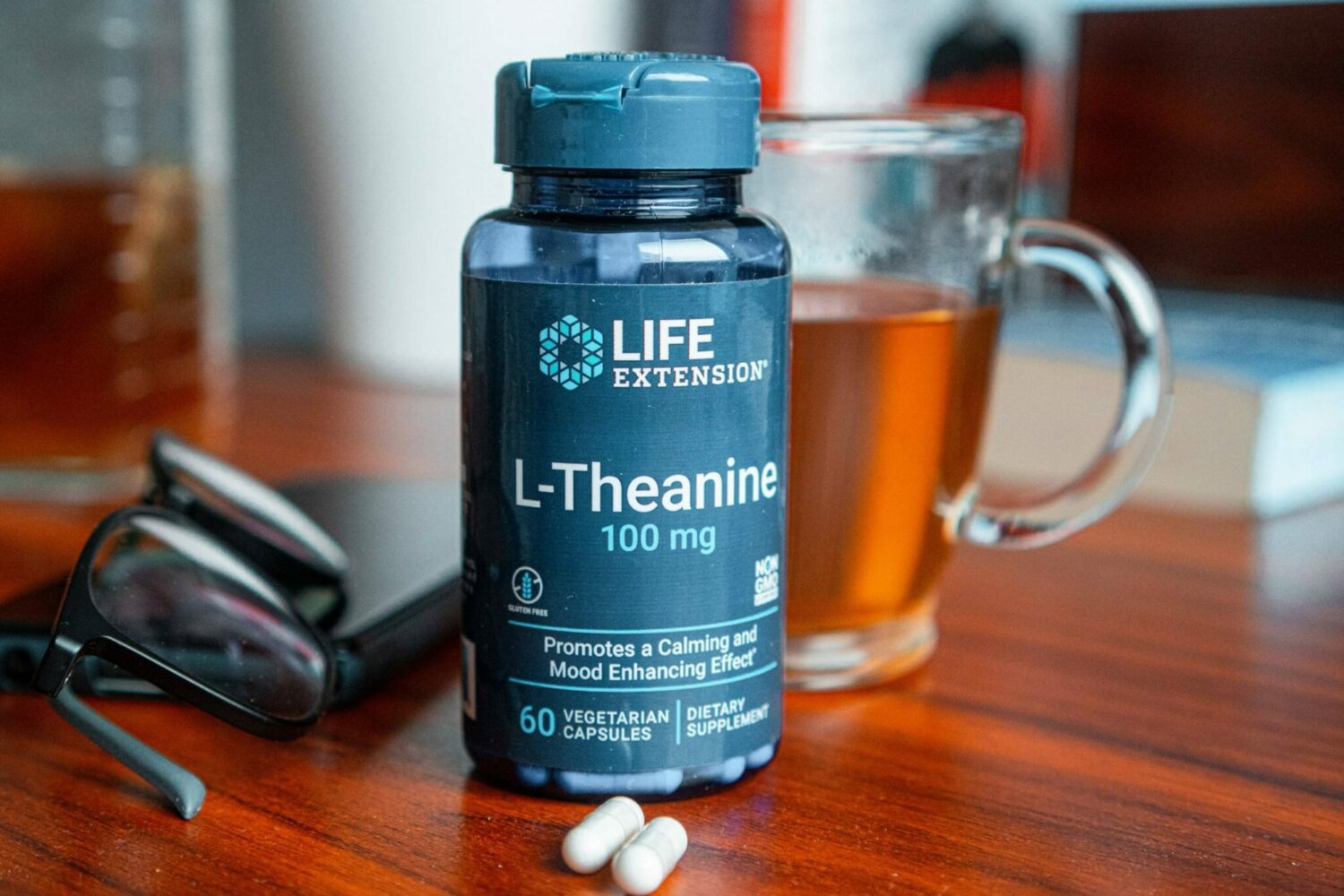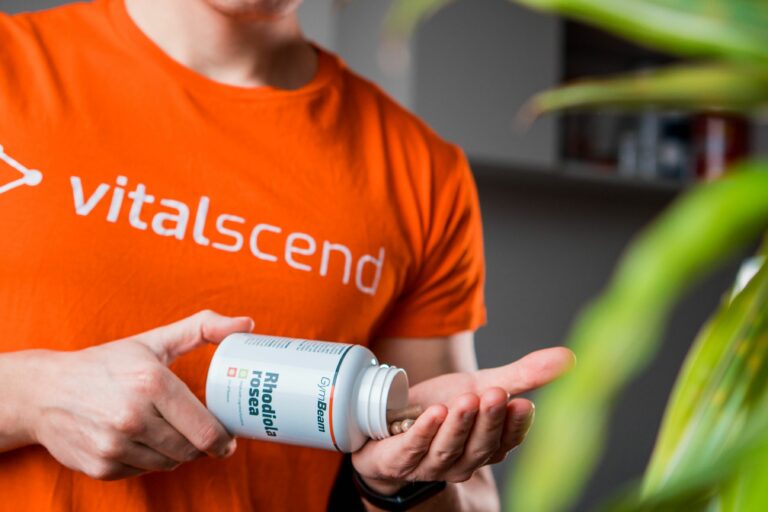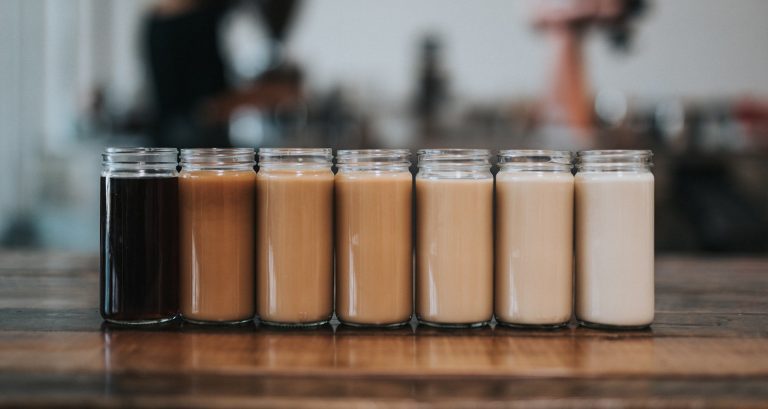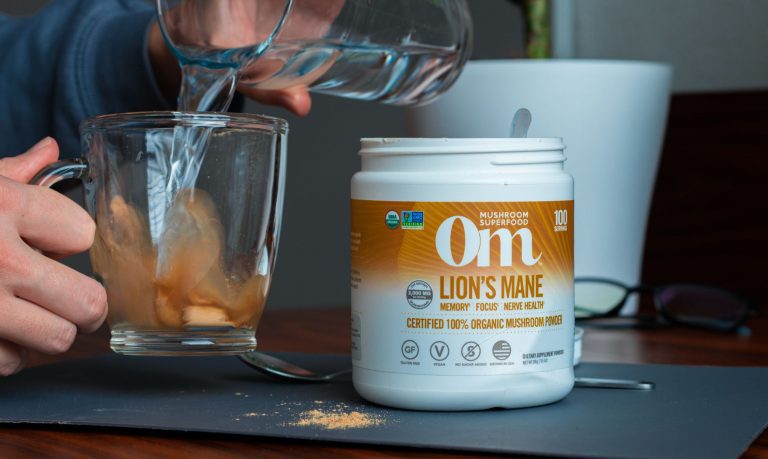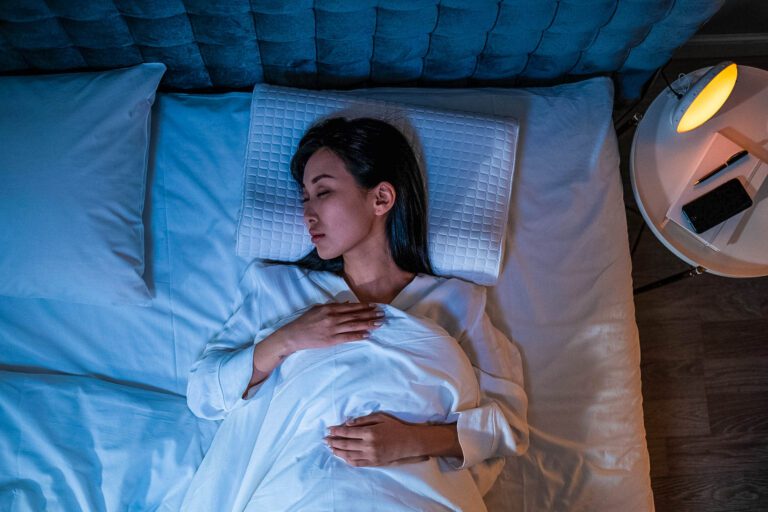Top 6 L-Theanine Benefits: Alertness, Sleep & Stress
If you’ve been wondering why green tea has so many benefits, on a spectrum from alertness to relaxation, it’s L-theanine. From alertness, and sleep improvement to mood enhancement and stress relief, we’ll discover all the L-theanine benefits. It’s quite an assertive but miracle compound, that is also a potent antioxidant.
What is L-Theanine
L-theanine is an amino acid found in plants like tea leaves and mushrooms. It has potent alertness-promoting effects, but can also help you relax and sleep better.
L-theanine is very similar to Glutamate, a stimulatory brain neurotransmitter. Theanine, due to its similar structure can act as Glutamate, or block its effects by binding to its receptor. (1)
It is usually sold as a supplement, in the form of capsules or green tea extracts. You can also get a good amount of L-theanine in green tea, matcha, gyokuro tea, black or white tea.
L-Theanine in Green Tea
It has a slightly bitter or savory flavor to it, known as umami. L-theanine is concentrated in the plant of Camelia Sinesis – green tea or Matcha Tea, and some mushrooms like Xerocomus badius.
Green tea has become somewhat of a mainstream drink, but it has surprising benefits. The nootropic benefits of green tea, like cognitive boost, neuroprotection, and reducing stress and anxiety are partially due to L-theanine’s presence.
Green tea is used in many cultures in addition to spiritual or mental training like meditation. The consumption of matcha tea is popular among monks, which used it to enhance the meditative experience.
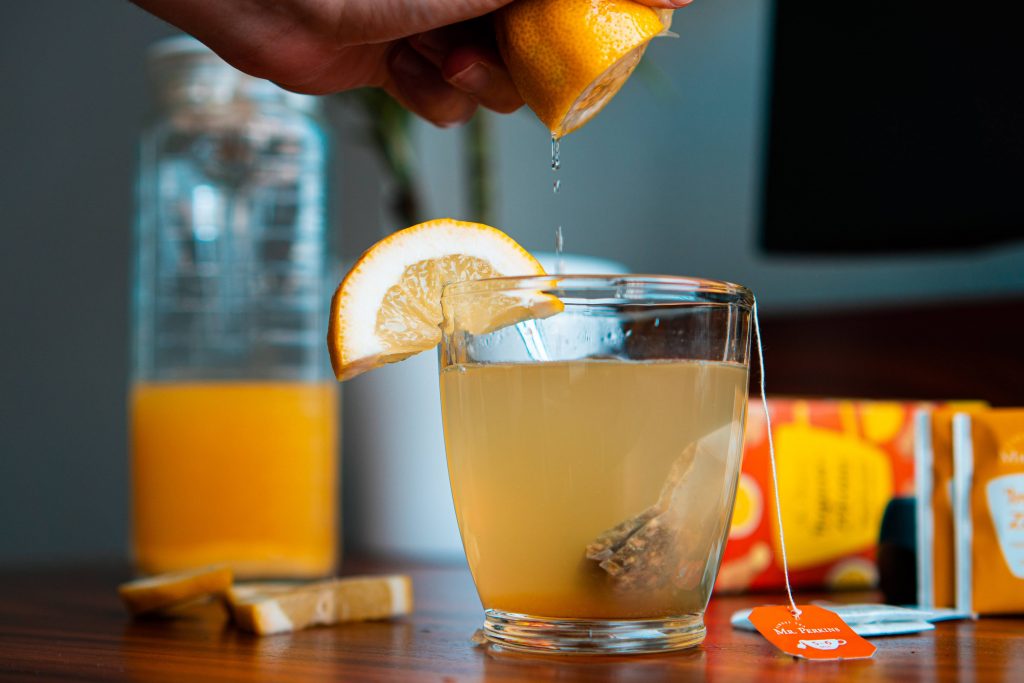
How does L-Theanine Work?
L-theanine, when ingested can cross the blood-brain barrier. It works by binding to glutamate receptors and has a direct effect on the brain. It can stimulate alpha brain waves, associated with relaxation. (2) (3)
L-theanine supposedly doesn’t cause drowsiness as many sedatives, hence why it can also be taken during the day to enhance mental performance. By stimulating alpha brain waves L-theanine can help us develop a state of relaxed alertness. This means we aren’t sleepy but focused.
Significant effects have been seen at 20mg of black tea, which may be a lot. However, research shows that drinking tea at normal levels is enough to replicate similar effects. Measuring the brain’s EGG after ingestion of 50mg L-theanine seemed to be effective in altering arousal and alertness. (4)
Uses of L-Theanine
L-theanine has been mainly used to enhance sleep, as it’s a powerful anxiolytic and stress reliever. It’s also a potent nootropic that comes with significant brain-boosting effects, especially in the realm of focus and alertness.
Supplemental forms of Theanine range from green tea extracts, matcha tea, capsules, and even chewable gums, yep.
Fun Fact
For sleep, it has been used in combination with GABA or Magnesium. For focus and productivity, it has been mixed with caffeine since both complement each other very well. L-theanine minimizes the jitteriness of caffeine, amplifying alertness and focus
Top 6 L-Theanine Benefits
1. Alertness, Cognition, and Focus
L-theanine is popular for its nootropic effect on the brain. It can support cognitive function and may affect arousal and attention. It can make it easier to learn and focus.
Studies show that L-theanine administration can reduce reaction time (in anxiety) and increase correct answers. This means theanine has positive effects on higher-level executive functions like thinking and working memory. (5) (6)
L-theanine can also improve executive functions like talking, which is associated with thinking. In healthy adults with stress symptoms, L-theanine improved verbal fluency and executive function. (7)
L-theanine and Caffeine
The most powerful combination for your brain is caffeine and theanine. I can’t forget how our sports nutrition teacher was amazed by theanine’s calming effect. In combination with caffeine, it doesn’t just reduce the jitteriness and shakiness, but theanine amplifies alertness and focus.
Combining 40 mg of caffeine and 97 mg of theanine showed improved alertness and reduced fatigue. It increased subjects’ ability to focus and improved their attention during a cognitive task. (8)
The combination of caffeine and theanine has also been shown to positively impact mood and accuracy. At doses of 250mg of theanine and 150 mg of caffeine, they improved reaction times, working memory, and sentence verification accuracy. (9)
2. Natural Sleep Aid
The balance between GABA an inhibitory neurotransmitter and Glutamate, an excitatory one, dictates the arousal of our brain. At nighttime, we’d want to see a shift to higher GABA concentration, which helps us relax and fall asleep.
The good thing about L-theanine is that it doesn’t cause drowsiness as other sedatives, making it a viable option throughout the day. It also helps reduce anxiety, which can help a racing brain fall asleep.
L-theanine and sleep
Combined with Magnesium, L-theanine was shown to improve sleep quality. The mechanisms behind were improved GABA activity and shift to delta brain wave frequency – associated with deep stages of non-REM sleep. (10)
This is why L-theanine takes a spot on our list of 6 tips to optimize sleep, along with other natural sleep aids.
Along with GABA, theanine was once again shown to improve sleep latency, meaning it took less time to fall asleep. The combination also improved sleep duration and increased REM sleep. (11)
3. Mood, Anxiety, and Stress
Finally, the most popular use of L-theanine is stress reduction. It seems that many green teas and similar herbal or tea extracts are used to enhance one’s mental state into a more relaxed one. Why? L-theanine.
As stated before, L-theanine has a similar structure to glutamate. It’s believed to reduce the brain’s hyperactivity by binding to glutamate receptors. Remember, G is excitatory, so if it’s not in action because theanine competes for its receptor, we’re more relaxed. (12)
L-theanine can cross the blood-brain barrier, a few minutes (to hours) after ingestion. It produces a calming and soothing effect and alleviates stress by increasing GABA levels. (13)
It can also calm down the nervous system, and reduce heart rate and immunoglobulin A – which indicates stress response. (14)
But theanine may also positively affect mood. It is known to affect dopaminergic and serotonergic activity. In plain English, this means it may increase dopamine, the hormone of satisfaction, and serotonin, the hormone of happiness. These are your main mood-boosting hormones. (15)
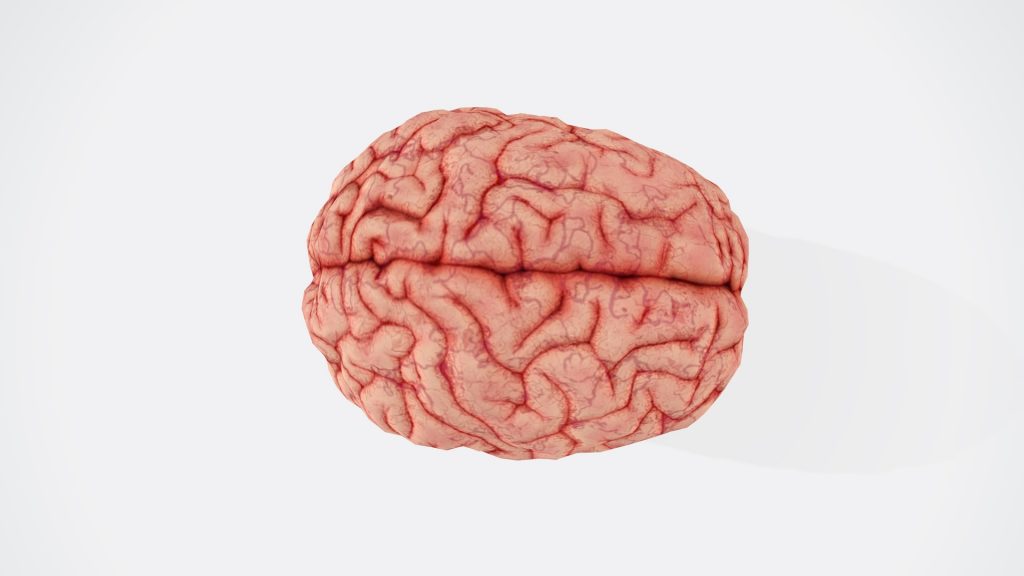
4. Improves memory
A good memory means looking for information in your brain, and being able to access it. Many times we have neural networks leading to information, but we can’t access it. Memorizing is an essential part of learning, and it seems that L-theanine can improve it.
Combining green tea extract and l-theanine together led to improvement in alertness, memory, and attention in adults with cognitive impairment. Their brainwave frequency was increased, signifying increased arousal. (16)
L-theanine was also shown to improve memory recall, reducing the number of errors in working memory tasks among Japanese subjects. (17)
When combined with caffeine, L-theanine can improve the accuracy of tasks that require switching attention in the middle. It can also improve memory tasks in difficult cognitive tasks. (18)
5. Cardiovascular Health
Heart health is determined by many biomarkers. From our physical performance to VO2max abilities, up blood pressure, heart rate variability, and inflammation biomarkers. It seems that L-theanine may improve some measures of cardiovascular health.
Research shows theanine’s ability to reduce blood-pressure spikes under physiological stressors. That also worked for those with anxiety. (18)
Theanine can act as a potent antioxidant, which is good for our hearts. Reducing inflammation also drops CVD risk, metabolic syndrome development, and other degenerative diseases. (19) L-theanine may also reduce the build-up of plaque or fat accumulation in your blood vessels. This can result in improved circulation, act anti-inflammatory and reduce the risk of atherosclerosis. (20)
It’s also recognized as a cardio-protective substance which also may aid in protecting from obesity, brain damage, and inflammation.
L-theanine may also exhibit a cholesterol-lowering effect another risk factor for CVD, plus it’s a vasodilator meaning it improves blood flow. (21)
6. Neuroprotection – Potent Antioxidant
Many plants like matcha and green tea have potent antioxidants like catechins and EGCG. These can fight oxidative stress, act as anti-aging and reduce inflammation. This is a win-win for those aiming at longevity.
In vivo and in vitro, L-theanine has been shown to possess strong antioxidant-like effects, acting anti-inflammatory and reducing oxidative stress. It can also act as neuroprotective, as it increased a potent antioxidant – glutathione. (22)
In terms of neuroprotection, in mice, it was shown to increase neurotransmitter levels like GABA, acetylcholine, and serotonin in the brain. (23)
L-theanine also impacts the biosynthesis of polyphenols, important compounds for brain health that fight inflammation.
By preventing hyperexcitability and increasing dopamine levels, green tea consumption may reduce the risk of neurodegenerative diseases like Parkinson’s disease. (24)
Disclaimer: The content on this Site is for informational purposes only, and it is NOT intended to give or replace medical advice. Make sure you consult your physician, doctor, or health professional before using any supplement, for its dosage, uses, precautions, and interactions.
Best Ways to Get L-Theanine
- Green tea: 6.56 mg/g
- White tea: 6.26 mg/g
- Oolong tea: 6.09 mg/g
- Black tea: 5.13 mg/g
To get L-theanine, you can drink green tea. Many teas coming from the Camelia Sinesis plants are rich in theanine. L-theanine is also present in some mushrooms such as Boletus Badius and Xerocomus badius.
Fun Fact
Green tea is the richest source of L-theanine, providing up to 6.56 mg/g. White tea is pretty similar, while black tea is slightly lower at around 5 mg/g.
Usually, if you want to get L-theanine, green tea or matcha is your best bet. Per 1 gram of matcha, you’d get up to 19 mg of Theanine, which is 3-4 times more than regular tea. Matcha is also rich in catechins and EGCGs which provide an additional source of antioxidants.
If you’re not a fan of caffeine, green teas, matcha, and coffee are off the table. The only option you’re left with is tea extracts or L-theanine supplements. It comes in the form of extracts, capsules, and even gums.
Supplementing with L-theanine can be the most effective way to get a higher amount of L-theanine, as supplements range at around 100-200 mg. You’d need to drink A LOT of tea to get this, which comes with a ton of caffeine, a bad deal. You can combine coffee with an L-theanine capsule or green tea with additional L-theanine.
CONCLUSION
L-theanine is an amino acid found in green tea, which helps reduce stress and improve cognition. It works by binding to glutamate receptors, so the excitatory effect of G is inhibited.
On the opposite, it increases GABA which has a relaxing, soothing effect. In combination with caffeine, theanine can amplify alertness, and improve focus, concentration, and memory.
L-theanine is a potent anxiolytic, working to boost mood by increasing serotonin and dopamine levels. It’s also a potent antioxidant, nootropic, and neuroprotective agent.
The best sources are green tea, matcha, and some mushrooms, while higher doses are taken in supplemental form.

